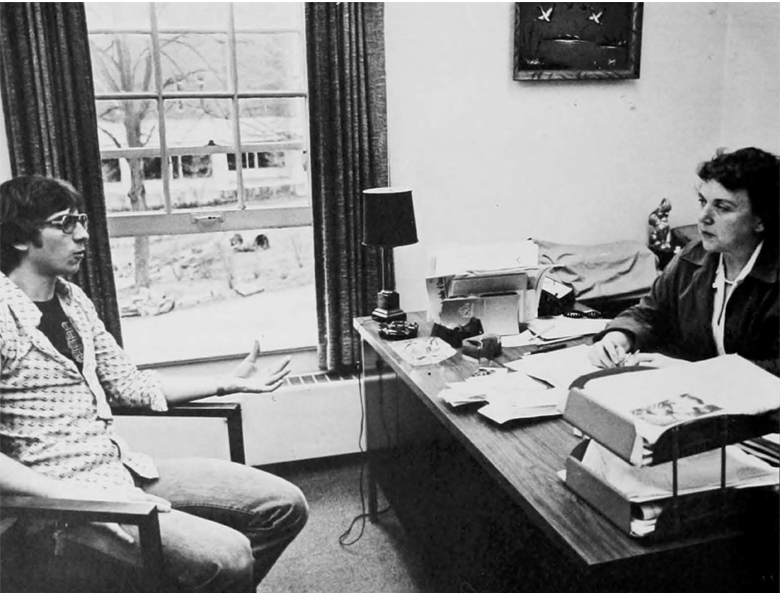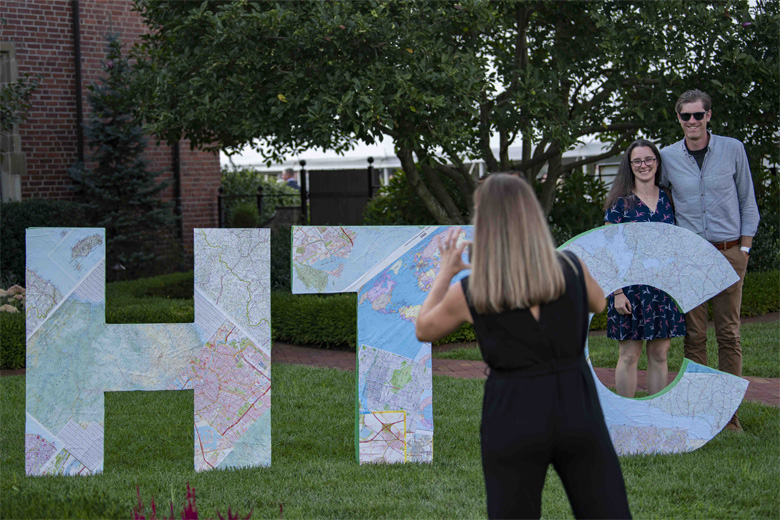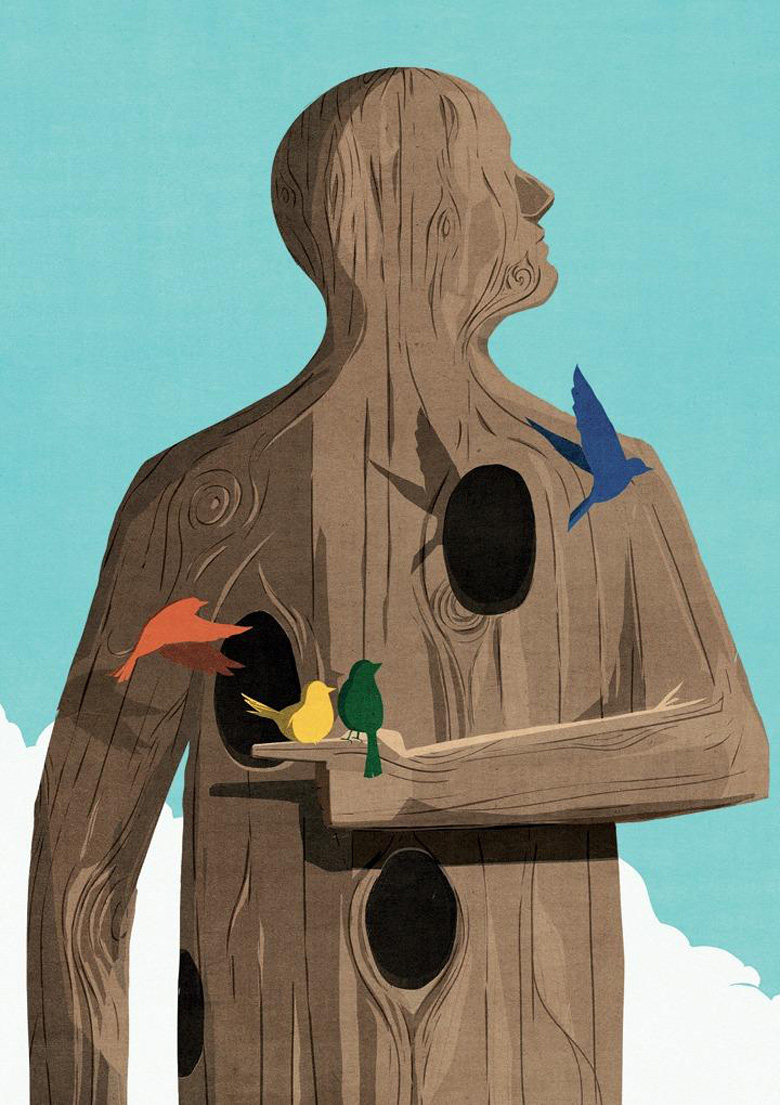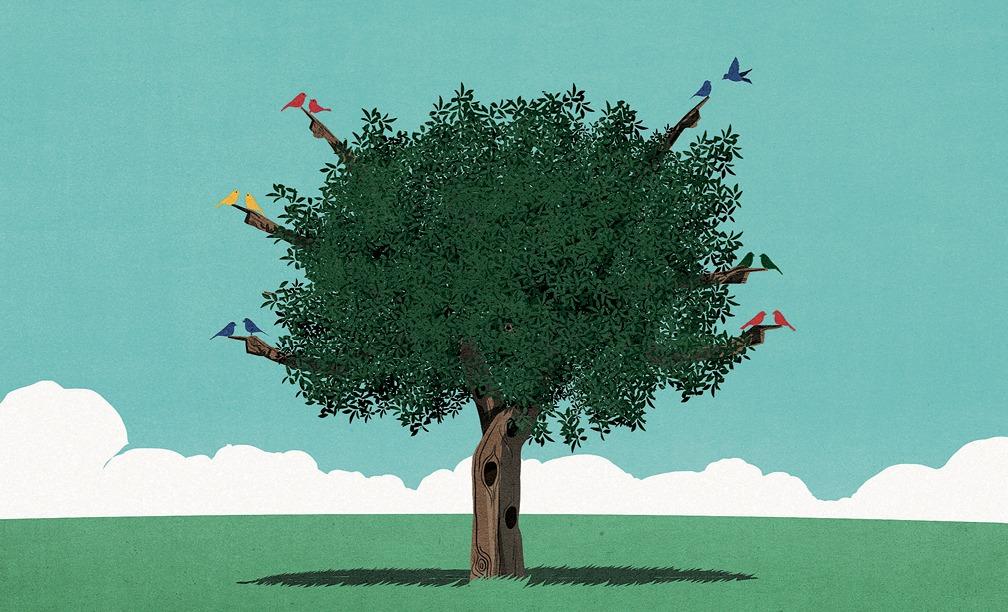“Extremely brilliant.”
That’s how Dr. Jairo Sinova, BS ’94, describes the fellow Honors Tutorial College students and professors who surrounded him as an Ohio University undergraduate. It’s high praise coming from an OHIO graduate and theoretical physicist who is one of the world’s leading experts in spintronics, an emerging field that is driving the next generation of electronics memory and processing.
Sinova is the founding director of the Spin Phenomena Interdisciplinary Center at Johannes Gutenberg University, where he also serves as an Alexander von Humboldt Professor, the most highly endowed research award in Germany. Among his accolades, Sinova has earned a National Science Foundation Career Award, and his work has been cited in peer-reviewed literature more than 20,000 times. But, he will tell you, it all traces back to OHIO’s Honors Tutorial College (HTC).
“That’s what defined my career. The undergraduate experience is just beyond belief,” says Sinova, who, as an HTC student, tackled increasingly complex physics problems, engaged in one-on-one tutorials with many professors, taught an astronomy course and conducted summer research at other universities.
Now that he is a professor, Sinova has a renewed appreciation for HTC’s signature tutorials. “It’s not just beneficial for the students; it really energizes the professors,” he says. “How [Ohio University] pulled it off, I have no idea.”
Fifty years ago, Ohio University did pull it off, establishing HTC, which remains the first and only degree-granting, tutorial-based, public honors college of its kind in the U.S. Based largely on the tutorial model at Oxford and Cambridge universities in England, HTC’s hallmark feature is the faculty-student tutorial, conducted one on one or in small groups. Students often take the lead in creating the tutorial curriculum, which allows for independent study in areas in which no current ‘on the books’ course is offered. In addition to participating in tutorials, HTC students have fewer prerequisites, opening the doors for them to direct their own education on a larger scale.
After HTC’s inception in 1972, the first class of 32 students arrived in fall 1973. Since then, more than 2,000 alumni have each gone on to make their mark on the world. They include Laura Brege, AB, BBA ’78, whose career spans C-suite positions and advisory roles to several biotechnology and pharmaceutical companies; NBA sideline reporter Allie LaForce, BSJ ’11; Pulitzer Prize-winning journalist Joe Mahr, BSJ ’94; Golden Globe-nominated actress Piper Perabo, BFA ’98; and former NASA lead scientist and current Dean of the University of Michigan School of Kinesiology Lori Ploutz-Snyder, BS, MS ’89, PHD ’94. Dr. Keith Hawkins, BS ’13, went directly from HTC to Cambridge as a Marshall Scholar and then became an assistant professor of astronomy at the University of Texas at Austin while still in his twenties.

In this photo from the 1980 Spectrum Green Yearbook, student Joe Forsthoffer, BA/BSJ ’83 (HTC), speaks with Dr. Margaret Cohn, then-director of the Honors Tutorial College. Cohn was named HTC dean in 1991. Photo courtesy of the Mahn Center for Archives and Special Collections
“They want to be the difference,” Dean Dr. Donal Skinner, who himself taught tutorials at Cambridge while completing his doctorate in biology, says of HTC’s students and graduates. That character trait, Skinner says, hasn’t changed over the past 50 years, and neither has the college’s tried-and-true tutorial method.
“This notion of a student or small group of students learning alongside a committed faculty member who is doing this work because they want to—that learning journey and that process has been very timeless,” says Cary Roberts Frith, BSJ ’92, MS ’98. An HTC graduate, Frith has also served the college as a tutor, thesis advisor, chief administrative and financial officer, associate dean and interim dean and says the rigor and self-directness of the tutorial system is not for everyone. “It’s a particular learner who wants to work in collaboration with the faculty and to do original research and creative activity.”
A few things have changed over the years. While HTC initially offered 10 programs of study, today students have access to more than 30 programs. And, along the line, HTC introduced a thesis requirement in which students complete a thesis or comparable professional project. Theses have covered everything from antibiotic resistance to LGBTQ and environmental movements. Another change is that today students take a first-year seminar together, preparing and empowering them for the rigors of a tutorial education.
Yet the heart of HTC is the same. “I’ve never seen another program that gives students as much agency over their own education,” Skinner says. “I think that model of education is so powerful that this is the major draw for those individuals to come here.”
As an undergraduate, Bruce Burtch, BGS ’72, was a student in OHIO’s Honors College, which debuted in fall 1964, contributing to honors programming at the University that dates back as far as the 1940s. In 1970, he participated in an English literature summer session at Oxford’s Trinity College and returned to Athens, acclaiming the institution’s tutorial system, particularly to one of his professors, the late Ellery Golos.
Golos helped secure a scholarship for Burtch to return to England in fall 1971 to study the Oxford and Cambridge tutorial system. In 1972, Golos submitted a proposal to President Claude Sowle for a “tutorial system” at OHIO, crediting Burtch for investigating the system of Oxford and Cambridge and suggesting adaptations for implementation at Ohio University. In his proposal, Golos postulated that a tutorial system at OHIO could “provide the best education for the highly gifted, highly motivated undergraduate student, and, strangely enough, can do so at less cost than the best alternatives.”
“Ellery shared my enthusiasm,” Burtch says, giving Golos credit for “all the heavy lifting” required to launch HTC, which built on previous honors programming to add the tutorial component. Golos became HTC’s first director, serving from 1972-77.
After a long career in marketing, Burtch today is executive director of Social Impact Productions, a nonprofit he founded, but one of his proudest accomplishments is the hand he played in inspiring HTC. “To see it 50 years later, I feel so deeply honored to know that I played a role in that.”

Honors Tutorial College alumni return to Athens the weekend of Aug. 26 to celebrate HTC’s 50th anniversary. The weekend included social gatherings; a memorial for HTC Dean Emeritus Joe Berman, MA ’66, PHD ’68, who passed away Dec. 12; and a dinner and gala with HTC faculty and students at Athens’ historic Zenner House. Photo by Dylan Benedict
As for the next 50 years, administrators hope to see more diversity, and Skinner is committed to growing the Honors Tutorial College Study Abroad Endowment, established in 2021 by K. Ann Shafer Cousins, BSED ’71, and Jack Cousins, so that every HTC student can access funding to study, research or volunteer abroad.
As an HTC student, Taylor Mirfendereski, BSJ ’14, received University funding to pursue her capstone professional project, Glass Half Empty: An American Water War, a documentary that aired on WOUB Public Media. To report the documentary, she spent more than a year following six Northeast Pennsylvania families dealing with the fallout from fracking and its impact on drinking water. Prior to this project, Mirfendereski pitched a tutorial in which she analyzed two network documentaries about Southeast Ohio.
“That helped me think about what makes a journalism documentary work, (to) think about the material in a different way,” she says. “It was something I was interested in that wasn’t in a normal journalism curriculum.”
Today, Mirfendereski is an investigative multimedia journalist for KING 5 News in Seattle, where she has won two Peabody Awards and nine Emmy Awards.
“The untraditional side of HTC helped me land untraditional roles in my professional career, which is how I found success,” she says. “You create your own destiny. Honestly, that’s the thing HTC is all about.”

Illustrations by Andrea Ucini
A growing OHIO honors and scholars community
Alongside Ohio University’s highly selective Honors Tutorial College—which boasted record enrollment last fall—is a growing OHIO Honors Program, providing high-promise students four years of academic enrichment inside and outside of the classroom.
Fully launched in fall 2019, today nearly 8 percent of undergraduates on the Athens Campus are enrolled in the OHIO Honors Program, which is open to all majors and being extended to the University’s regional campuses.
Working with dedicated honors advisors, students in the program participate in honors courses and small group seminars or honors projects in traditional courses while supplementing their studies through community engagement, research and creative activity, and leadership experiences. The four-year program culminates with a capstone portfolio, in which students showcase and share the skills and knowledge they acquired. Students who complete the program earn honors designations on their OHIO transcripts and diplomas.
For senior nutrition science major Eunice Prasojo, it was the program’s required first-year Engagement Lab that allowed her to expand her horizons and establish a legacy on campus.
“My peers and I were able to create the Global Buddies Program that focuses on creating a welcoming environment for international students,” says Prasojo, an international student from Indonesia. “The creation of this program has opened many doors to various opportunities for me.”
This fall, the University is launching the 1804 Scholars Program, a new residential scholars program focused on university engagement and personal well-being.

